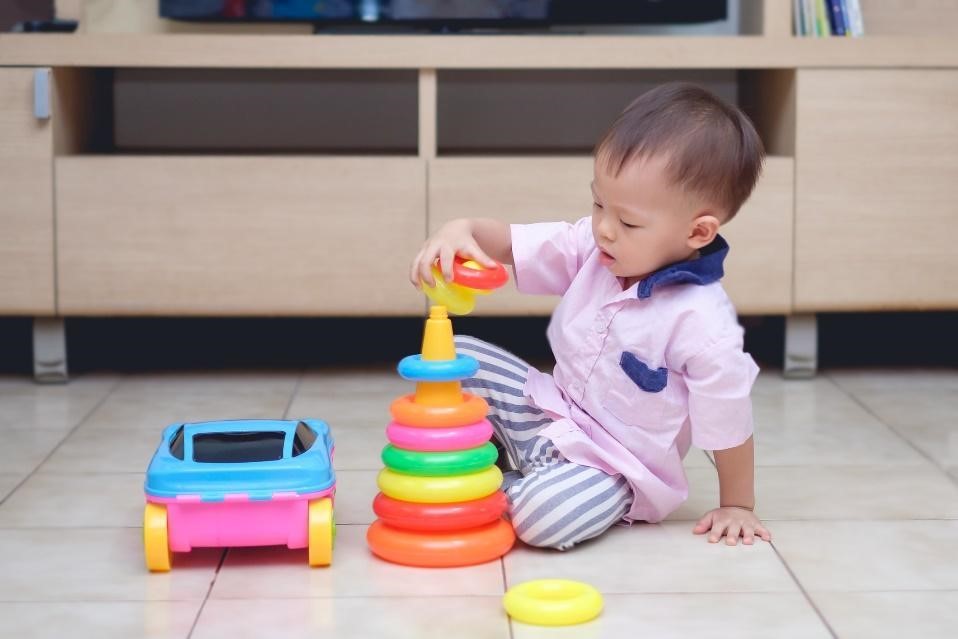Empower young children by teaching them problem-solving skills that will last a lifetime
Problem-solving skills can be taught, and even very young children can benefit from the experience of persistence and overcoming obstacles.
Although the natural tendency of a caregiver is often to fix problems, allowing a toddler to take ownership of a solution is actually teaching them skills that will benefit them throughout life. Help nurture independence and encourage creative, critical thinking by inviting problem-solving opportunities into your child care environment.
Encourage natural efforts
Toddlers encounter many obstacles throughout their day. As avid explorers and active beings, they are often navigating around, over, or under objects, reaching for items, or wanting to make something work a certain way.
Very young children experience the frustration of being challenged but often lack the language to communicate that to others. Instead of stepping in to assist them, identify the problem out loud and let them know how you will remedy it. “I see you reaching for your cup of milk, but the counter is too high. Let me get you a stool.” Once they’ve accomplished their mini-mission, praise their efforts. “Good job using your stool to reach your milk!”
The simple act of identifying a problem is the first step toward solving it.
What comes next
Learning cause and effect is an important part of not only early childhood development but also problem-solving. Give young children space and opportunity to learn by doing. Babies begin to make connections about cause and effect by playing with toys that produce a response. Provide a variety of playthings that make sounds or light up when moved. As the baby progresses to a stage that involves better hand-eye coordination and movement such as rolling or crawling, place toys just out of reach to encourage them to work to get to the item.
Stacking rings, shape sorters, or building blocks provide excellent lessons about cause and effect for older babies and toddlers. They can learn how the toy works by watching a caregiver and then experiment with cause and effect until they find the solution on their own.
Ask the right questions
Inspiring creative thinking is another way to motivate toddlers to develop problem-solving skills. For instance, if a ball rolls behind a shelf, ask them how they think you should reach it and then offer your own ideas.
You can also point out challenges that are being experienced by book characters in story time, offer two potential solutions, and ask which they would choose. Starting an ongoing dialog about facing challenges, being persistent, and trying to overcome helps young children recognize similar situations in their own life as they encounter obstacles.
Problem-solving skills are an important part of cognitive development. For better or for worse, the world provides plenty of problems to explore; take advantage of those opportunities as a caregiver to help young children identify, communicate, persist, and solve the challenges they face while guiding them in a safe and supportive fashion.
The Virginia Infant & Toddler Specialist Network helps improve the quality of care for infants and toddlers through extensive resources, services, and education for caregivers. Learn more about how we can help you improve the standard of care.




